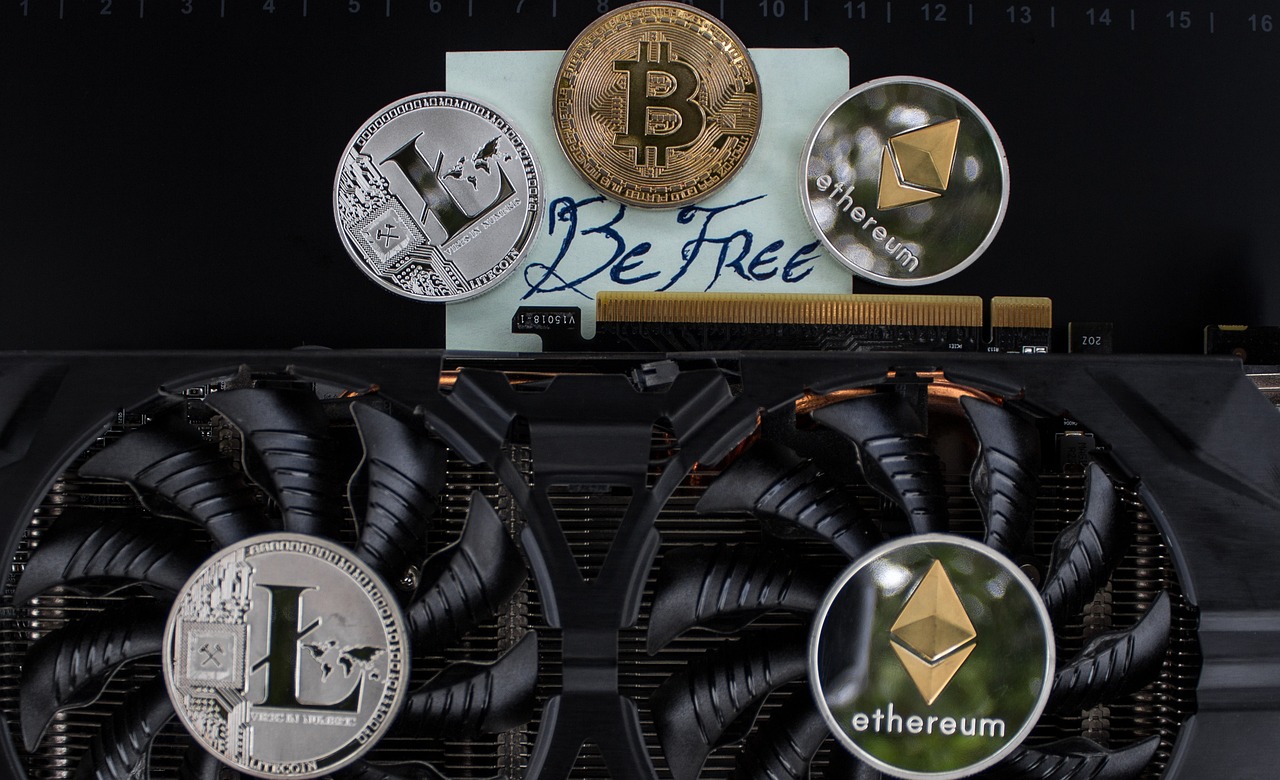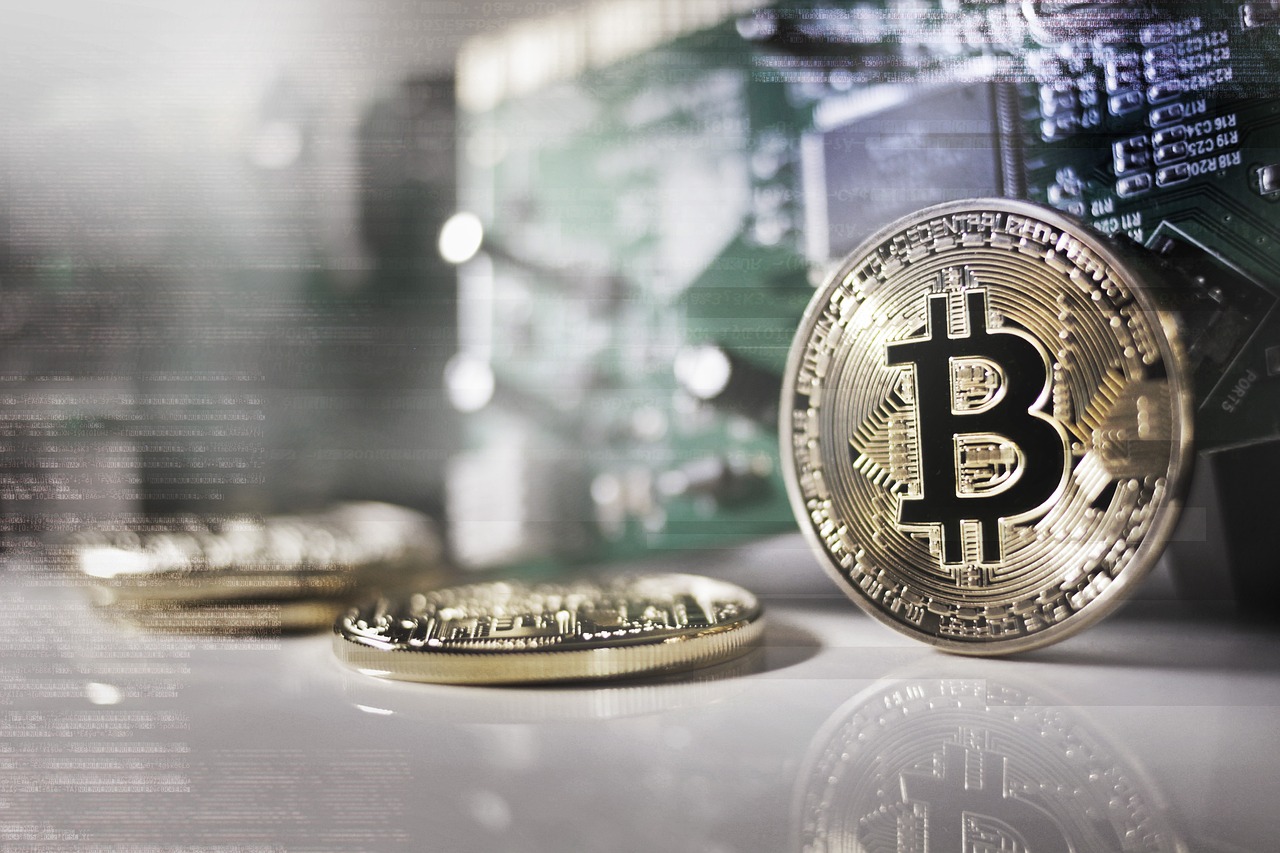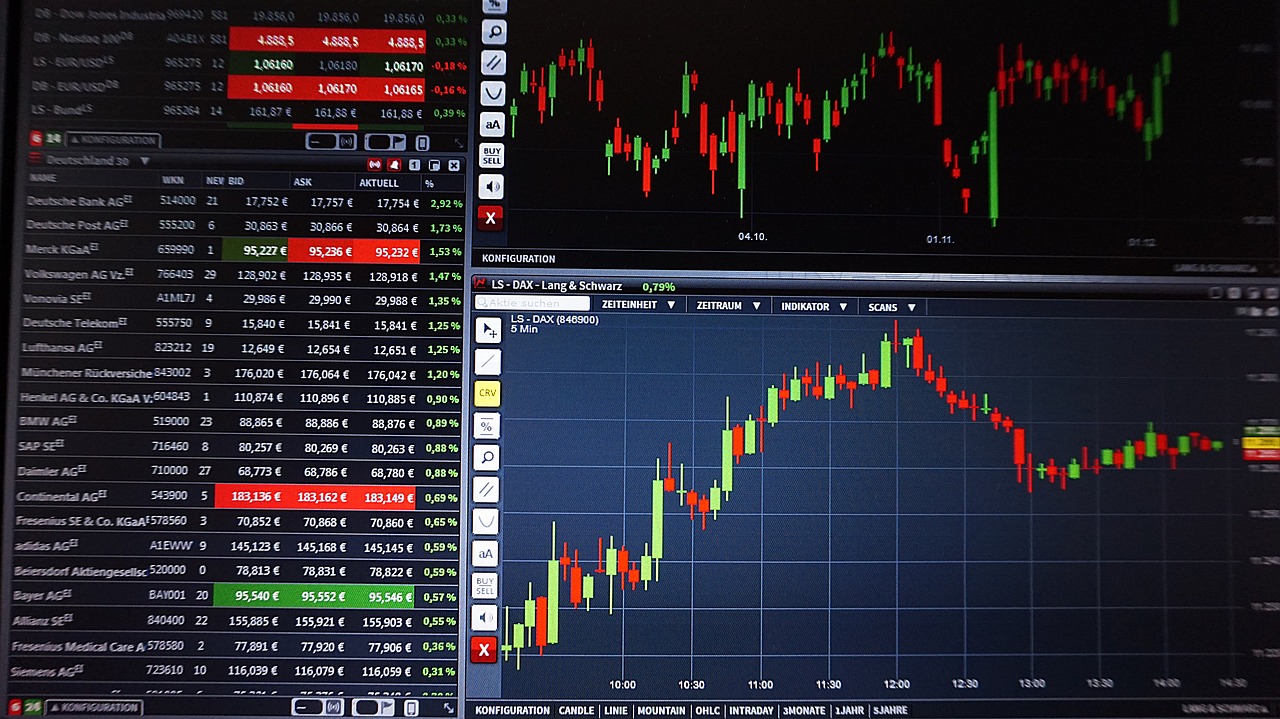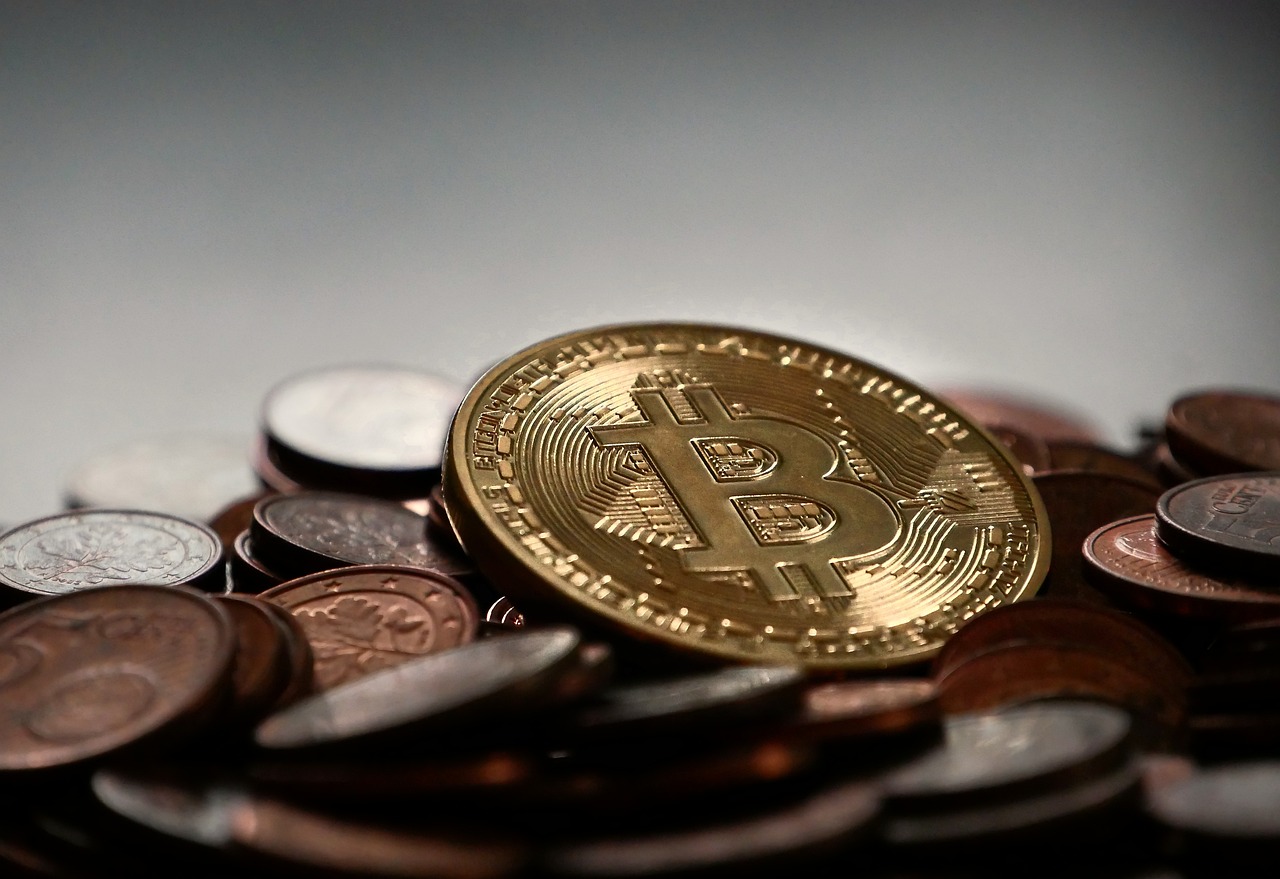The Role of Decentralized Exchanges in the Crypto Market
In recent years, the cryptocurrency landscape has undergone a significant transformation, with decentralized exchanges (DEXs) emerging as pivotal players in this evolving ecosystem. Unlike traditional exchanges that operate under a central authority, DEXs allow users to trade directly with one another, fostering a sense of autonomy and control over their assets. This article explores the significance of DEXs, highlighting their benefits, challenges, and the future they hold in a rapidly changing financial world.
Decentralized exchanges function on blockchain technology, enabling peer-to-peer trading without intermediaries. This innovative approach not only enhances user privacy but also minimizes the risks associated with centralized platforms, such as hacking and fraud. The fundamental difference between DEXs and traditional exchanges lies in their operational structure. While centralized exchanges require users to deposit funds into their wallets, DEXs allow traders to maintain ownership of their assets throughout the trading process. This shift towards user autonomy is a game-changer, offering a more secure and transparent trading environment.
One of the most compelling reasons traders are gravitating towards DEXs is the myriad of advantages they offer. First and foremost, privacy is significantly enhanced, as users can trade without revealing their identities. Additionally, DEXs typically impose lower fees compared to their centralized counterparts, making them a cost-effective option for frequent traders. Moreover, the security of DEXs is often touted as superior; since they do not hold users' funds, the risks of large-scale hacks are considerably reduced. In essence, DEXs empower users by providing a platform that prioritizes freedom and security.
Despite their numerous benefits, decentralized exchanges are not without challenges. One significant hurdle is the issue of liquidity. Many DEXs struggle to attract sufficient trading volume, which can lead to slippage and less favorable trading conditions. Furthermore, regulatory scrutiny poses a growing concern for DEX operators. As governments worldwide seek to impose regulations on the crypto market, DEXs must navigate a complex landscape of compliance while maintaining their core principles of decentralization. These challenges undoubtedly impact the growth and adoption of DEXs, but they also present opportunities for innovation and improvement.
Liquidity is the lifeblood of any trading platform, and DEXs are no exception. To manage liquidity, many decentralized exchanges utilize liquidity pools, which are collections of funds locked in smart contracts. These pools allow users to trade directly with one another while earning rewards for providing liquidity. Market makers also play a crucial role in enhancing liquidity by facilitating trades and ensuring that there are always buyers and sellers available. Understanding how liquidity works in DEXs is essential for traders looking to maximize their trading experience.
While DEXs are often praised for their security features, they are not entirely immune to risks. Common vulnerabilities include smart contract bugs, phishing attacks, and the potential for front-running—where a trader executes orders based on non-public information. To safeguard their assets, users should adhere to best practices such as conducting thorough research on the platforms they use, enabling two-factor authentication, and regularly updating their security protocols. By remaining vigilant, traders can significantly mitigate the risks associated with decentralized exchanges.
The regulatory environment surrounding decentralized exchanges is evolving at a rapid pace. Currently, many jurisdictions are grappling with how to classify and regulate DEXs, which often operate in a grey area of the law. Some countries have embraced these platforms, while others have imposed strict regulations or outright bans. As the crypto market matures, it is essential for DEX operators to stay informed about regulatory developments and adapt their practices accordingly. The future of DEXs will likely depend on their ability to comply with regulations while maintaining their decentralized nature.
Looking ahead, the future of decentralized exchanges appears bright, with several emerging trends poised to shape their evolution. Advancements in blockchain technology, such as layer-2 solutions and cross-chain interoperability, are expected to enhance the efficiency and usability of DEXs. Additionally, the rise of decentralized finance (DeFi) is likely to drive more users towards DEXs, as these platforms become integral to the broader DeFi ecosystem. As traders increasingly seek alternatives to traditional finance, DEXs will play a crucial role in facilitating this transition.
When considering where to trade, it's essential to weigh the pros and cons of both decentralized and centralized exchanges. While centralized exchanges offer user-friendly interfaces and high liquidity, they come with risks such as hacks and lack of privacy. On the other hand, DEXs provide enhanced security and control over assets but may face challenges related to liquidity and user experience. Ultimately, the choice between DEXs and centralized exchanges will depend on individual trading preferences and risk tolerance.
- What are decentralized exchanges? Decentralized exchanges are trading platforms that operate without a central authority, allowing users to trade directly with one another.
- Are DEXs safe to use? While DEXs offer enhanced security compared to centralized exchanges, they are not immune to risks. Users should follow best practices to protect their assets.
- How do I provide liquidity on a DEX? Users can provide liquidity by depositing their assets into liquidity pools, where they earn rewards for facilitating trades.
- What are the main challenges DEXs face? Key challenges include liquidity issues, regulatory scrutiny, and security vulnerabilities.

Understanding Decentralized Exchanges
Decentralized exchanges, or DEXs, are revolutionizing the way we trade cryptocurrencies. Unlike traditional exchanges that operate under a central authority, DEXs allow users to trade directly with one another. This means that when you use a DEX, your funds never leave your wallet, which significantly reduces the risk of hacks and fraud. Imagine the difference between handing your money to a bank and keeping it in your own safe—this is the essence of what DEXs offer.
At their core, DEXs utilize smart contracts—self-executing contracts with the terms of the agreement directly written into code. This technology enables trades to occur automatically without the need for intermediaries. When you place an order on a DEX, it gets matched with another user's order through an automated process. This not only enhances efficiency but also ensures transparency, as all transactions are recorded on the blockchain.
One of the fundamental differences between DEXs and their centralized counterparts is user autonomy. In a centralized exchange, you have to trust the platform to safeguard your assets. If the exchange is hacked or goes bankrupt, you could lose your funds. However, DEXs empower users by allowing them to maintain control of their private keys. This means that you are the sole custodian of your assets, significantly enhancing your security and privacy.
Moreover, DEXs often operate on a peer-to-peer basis, which means they can facilitate trades without the need for a middleman. This can lead to lower fees compared to centralized exchanges, where transaction fees and withdrawal fees can eat into your profits. Additionally, DEXs can offer a wider range of tokens and trading pairs, catering to niche markets that centralized exchanges may overlook.
However, it's important to note that DEXs are not without their challenges. For instance, the user interface can sometimes be less intuitive than that of centralized exchanges, which may deter less experienced traders. Furthermore, while DEXs offer enhanced privacy, they can also attract illicit activities due to the lack of regulatory oversight. This creates a complex landscape that is constantly evolving.
In summary, decentralized exchanges represent a significant shift in the cryptocurrency trading paradigm. They offer unparalleled security, user control, and lower fees, but they also come with their own set of challenges. As more traders become aware of the benefits of DEXs, it’s likely that their popularity will continue to grow, reshaping the future of cryptocurrency trading.

Advantages of Using DEXs
Decentralized exchanges (DEXs) have emerged as a game-changer in the cryptocurrency market, offering a plethora of advantages that traditional centralized exchanges simply cannot match. One of the most significant benefits is the **enhanced privacy** that DEXs provide. Unlike centralized platforms, where users must often complete extensive Know Your Customer (KYC) verification processes, DEXs allow traders to maintain their anonymity. This is particularly appealing for those who value their privacy and wish to keep their financial activities discreet.
Another compelling reason traders are flocking to DEXs is the **lower fees** associated with transactions. Centralized exchanges typically charge hefty fees for trading, withdrawals, and deposits, which can eat into profits. In contrast, DEXs usually operate on a model that minimizes these costs, allowing users to retain more of their earnings. For example, while a centralized exchange might charge a 0.25% trading fee, a DEX could offer rates as low as 0.1% or even less, depending on the platform and the trading volume.
Security is also a major selling point for DEXs. Since they operate without a central authority, users maintain control over their funds at all times. This means that there is no central point of failure that hackers can target. Users trade directly from their wallets, which significantly reduces the risk of hacks that have plagued many centralized exchanges. However, it’s essential to note that while DEXs offer increased security, they are not completely immune to risks. Users must still exercise caution and follow best practices to protect their assets.
Moreover, DEXs promote **greater market accessibility**. Anyone with an internet connection can access these platforms, regardless of their geographical location. This democratization of trading is particularly beneficial for users in regions where access to traditional financial services is limited. With DEXs, traders can participate in the global cryptocurrency market without the barriers often imposed by centralized exchanges.
Furthermore, DEXs often offer a wider variety of trading pairs. Users can trade not just major cryptocurrencies like Bitcoin and Ethereum but also a plethora of altcoins and tokens that may not be available on centralized platforms. This variety allows traders to diversify their portfolios more effectively and explore emerging projects that might have significant potential.
In addition to these advantages, DEXs foster a sense of **community** and **collaboration**. Many DEX platforms are built on open-source protocols, allowing developers to contribute and innovate continuously. This collaborative environment leads to the development of new features and functionalities that can enhance the trading experience for users. It’s like being part of a vibrant ecosystem where everyone is working together to create something better.
In summary, the advantages of using decentralized exchanges are numerous and compelling. From enhanced privacy and lower fees to increased security and greater market accessibility, DEXs are reshaping the trading landscape. As more traders recognize these benefits, it’s clear that decentralized exchanges are here to stay, offering a refreshing alternative to traditional centralized platforms.
- What are decentralized exchanges? DEXs are trading platforms that allow users to trade cryptocurrencies directly with one another without a central authority.
- Are DEXs safe to use? While DEXs offer enhanced security compared to centralized exchanges, users must still follow best practices to protect their assets.
- How do DEXs ensure liquidity? DEXs utilize liquidity pools and market makers to facilitate trading, ensuring that users can buy and sell assets without significant delays.
- Can I trade any cryptocurrency on a DEX? Many DEXs offer a wide variety of trading pairs, including both major cryptocurrencies and lesser-known altcoins.

Challenges Faced by DEXs
While decentralized exchanges (DEXs) are heralded as the future of trading in the cryptocurrency landscape, they are not without their own set of challenges. These hurdles can significantly impact their growth and adoption, making it essential for users to understand them. One of the most pressing issues is liquidity. Unlike centralized exchanges, which can pool resources to ensure a steady flow of trades, DEXs often struggle to maintain sufficient liquidity. This can lead to wider spreads and slippage, discouraging traders from using these platforms. Imagine trying to buy a rare collectible; if no one is willing to sell it, you might have to pay a premium or wait indefinitely. The same principle applies to trading on DEXs.
Another challenge is regulatory scrutiny. As governments around the world tighten their grip on the cryptocurrency market, DEXs face increasing pressure to comply with regulations that were primarily designed for centralized exchanges. This can create confusion and uncertainty for users. For instance, if a DEX is required to implement Know Your Customer (KYC) protocols, it could undermine the very privacy that attracts users to decentralized platforms in the first place. The balance between regulation and user autonomy is a delicate dance, and getting it wrong could have significant repercussions.
Furthermore, user experience can be a significant barrier to entry for many potential traders. Many DEXs have interfaces that are not as intuitive as those found on centralized exchanges. This complexity can intimidate newcomers, making them less likely to engage with these platforms. Think of it like trying to navigate a complicated maze without a map; the frustration can lead to a quick exit. As the crypto market continues to evolve, improving user experience should be a top priority for DEX developers.
Lastly, there are security vulnerabilities that, despite the inherent advantages of decentralization, can still pose risks. Smart contracts, which are the backbone of many DEXs, can be susceptible to bugs and exploits. This has been evidenced by several high-profile hacks in the past. Users must remain vigilant, as the decentralized nature of these exchanges means that there is often no recourse in the event of a loss. Implementing best practices, such as auditing smart contracts and using hardware wallets, is essential for safeguarding assets.
In summary, while DEXs present a revolutionary approach to trading in the cryptocurrency market, they face significant challenges that must be addressed. From liquidity issues to regulatory scrutiny, user experience, and security vulnerabilities, these hurdles require careful consideration. As the industry matures, overcoming these obstacles will be crucial for the long-term viability of decentralized exchanges.
- What is liquidity, and why is it important for DEXs?
Liquidity refers to the availability of assets in a trading market. It's crucial for DEXs as it allows for smoother transactions and minimizes price slippage. - How do regulatory challenges affect DEXs?
Regulatory challenges can lead to compliance requirements that may compromise user privacy and the fundamental decentralized nature of these exchanges. - What security measures should users take when using DEXs?
Users should utilize hardware wallets, conduct thorough research on the DEX's smart contracts, and remain vigilant about potential phishing attempts. - Are DEXs user-friendly?
Many DEXs have interfaces that can be complex and intimidating for new users, which may hinder their adoption.

Liquidity in Decentralized Exchanges
When we talk about liquidity in decentralized exchanges (DEXs), we're diving into one of the most crucial aspects that can make or break a trading platform. Imagine trying to sell your car in a town where no one wants to buy it; that’s what low liquidity feels like in the crypto world. In DEXs, liquidity refers to how easily assets can be bought or sold without causing a significant impact on their price. High liquidity means you can trade quickly at stable prices, while low liquidity can lead to slippage, where you end up getting a worse deal than you expected.
So, how do DEXs manage to maintain liquidity? One of the primary mechanisms is through liquidity pools. These are collections of funds locked in a smart contract that provide the necessary liquidity for traders. Users, often referred to as liquidity providers (LPs), contribute their assets to these pools in exchange for a share of the trading fees generated. It’s a bit like pooling your resources with friends to buy a group gift; everyone chips in, and everyone benefits from the total value created.
Moreover, the role of market makers cannot be overlooked. Market makers are entities or individuals who provide liquidity by placing buy and sell orders on the exchange. They help to stabilize prices and ensure that there are enough assets available for trades. In a decentralized environment, this can be more challenging than in centralized exchanges, where market makers have more control over the trading environment. DEXs rely on algorithms and community participation to keep the wheels turning smoothly.
However, the challenge remains: how do DEXs attract enough liquidity to compete with their centralized counterparts? One effective strategy is the use of incentives. Many DEXs offer rewards in the form of governance tokens or additional fees for users who contribute liquidity. This gamification of liquidity provision encourages more users to participate, creating a more robust trading environment. But, as with any investment, potential liquidity providers should weigh the risks and rewards carefully.
In conclusion, liquidity is the lifeblood of decentralized exchanges. Without it, the trading experience can be frustrating and inefficient. As the DEX landscape continues to evolve, innovations in liquidity management will be essential for attracting more users and ensuring a seamless trading experience. The future of DEXs might just hinge on how well they can solve the liquidity puzzle.
- What is liquidity in decentralized exchanges? Liquidity in DEXs refers to how easily assets can be bought or sold without significantly affecting their price.
- How do liquidity pools work? Liquidity pools are collections of funds locked in a smart contract that provide liquidity for traders. Users contribute their assets to these pools in exchange for a share of the trading fees.
- What role do market makers play in DEXs? Market makers provide liquidity by placing buy and sell orders, helping to stabilize prices and ensure sufficient assets are available for trading.
- How can DEXs attract liquidity? DEXs can attract liquidity by offering incentives such as governance tokens or additional fees for users who contribute liquidity.

Security Concerns in DEXs
When it comes to decentralized exchanges (DEXs), the first thing that often comes to mind is their security. While they offer enhanced privacy and control over one’s assets, they are not without their own set of vulnerabilities. It's a bit like having a high-tech home security system; it might be advanced, but if you don't know how to use it properly, you're still at risk. So, what are the security concerns that users should be aware of?
One major concern is the risk of smart contract vulnerabilities. DEXs rely heavily on smart contracts to facilitate trades without a central authority. However, if these contracts have coding flaws, they can be exploited by malicious actors. For instance, a bug in the code could allow a hacker to drain funds from the exchange, leading to significant losses for users. This is why it's crucial for developers to conduct thorough audits and for users to research the platforms they choose to engage with.
Another issue is the potential for phishing attacks. Just like in traditional finance, where scammers trick users into revealing their bank details, in the crypto world, phishing schemes have become increasingly sophisticated. Users might receive fake emails or messages that appear to be from a legitimate DEX, urging them to enter their private keys or seed phrases. This can lead to irreversible loss of funds, as once the keys are in the wrong hands, there’s no way to recover them.
Additionally, the nature of decentralization itself can pose risks. Unlike centralized exchanges that have dedicated teams to monitor and respond to suspicious activities, DEXs often lack this level of oversight. This can make it difficult to detect fraudulent transactions or market manipulation. In essence, while DEXs empower users, they also place the onus of security on the individual, which can be daunting for newcomers.
To mitigate these risks, users should adopt best practices for securing their assets. Here are some recommendations:
- Use Hardware Wallets: Storing your cryptocurrencies in hardware wallets can significantly reduce the risk of online theft.
- Enable Two-Factor Authentication: Whenever possible, enable 2FA for an extra layer of security.
- Be Wary of Links: Always double-check URLs and avoid clicking on links in unsolicited messages.
- Stay Informed: Keep up with the latest security news in the crypto space to be aware of potential threats.
In conclusion, while DEXs offer an exciting and innovative way to trade cryptocurrencies, they come with their own set of security challenges. By understanding these risks and implementing robust security measures, users can better protect themselves and enjoy the benefits that decentralized trading has to offer.

Regulatory Landscape for DEXs
The regulatory landscape for decentralized exchanges (DEXs) is a complex and rapidly evolving arena that has significant implications for the future of cryptocurrency trading. Unlike traditional exchanges that operate under strict regulatory frameworks, DEXs function in a decentralized manner, often making it challenging for regulators to enforce compliance. This lack of central authority can create a sense of freedom for users, but it also raises questions about accountability and consumer protection.
As governments around the world begin to recognize the growing influence of cryptocurrencies, many are scrambling to establish regulations that can effectively govern DEXs. The primary objective of these regulations is to prevent illegal activities such as money laundering and fraud, while also ensuring that consumers are protected in an increasingly digital financial landscape. However, the unique nature of DEXs complicates this process.
For instance, since DEXs do not hold user funds or personal information, traditional regulatory measures, such as Know Your Customer (KYC) and Anti-Money Laundering (AML) requirements, are difficult to implement. This has led to a variety of approaches by different jurisdictions. Some countries have embraced DEXs with open arms, fostering innovation and encouraging the growth of decentralized finance (DeFi). Others, however, have taken a more cautious stance, imposing strict regulations that could hinder the development of these platforms.
To illustrate the varying regulatory approaches, consider the following table:
| Country | Regulatory Approach |
|---|---|
| United States | Mixed; some states have strict regulations while others are more lenient |
| European Union | Developing comprehensive regulations with a focus on consumer protection |
| China | Strict bans on cryptocurrency trading, including DEXs |
| Singapore | Proactive regulation; promotes innovation while ensuring compliance |
As we look to the future, it’s essential to keep an eye on how these regulations evolve. The challenge lies in striking a balance between fostering innovation and ensuring user safety. Regulatory clarity could potentially lead to greater mainstream adoption of DEXs, as users feel more secure knowing that there are safeguards in place. However, overly stringent regulations could stifle innovation and push users back to centralized platforms.
Moreover, the rise of decentralized autonomous organizations (DAOs) adds another layer of complexity to the regulatory discussion. DAOs are organizations governed by smart contracts, allowing for collective decision-making without a central authority. This structure raises questions about liability and governance that regulators are still grappling with. As DEXs continue to grow and evolve, the conversation around regulation will undoubtedly become more nuanced, requiring ongoing dialogue between industry stakeholders and regulators.
In conclusion, the regulatory landscape for DEXs is not just about compliance; it's about the future of finance itself. As the crypto market continues to mature, the way DEXs are regulated will play a crucial role in shaping the ecosystem. Will regulators embrace the innovation that DEXs represent, or will they impose restrictions that could hinder their growth? Only time will tell, but one thing is clear: the conversation is just beginning.
- What are decentralized exchanges? DEXs allow users to trade cryptocurrencies directly with one another without a central authority.
- How do DEXs differ from centralized exchanges? DEXs prioritize user autonomy and security, while centralized exchanges often provide additional services but require users to trust the platform.
- Why is regulation important for DEXs? Regulation helps protect consumers, prevent illegal activities, and foster a safer trading environment.
- What challenges do DEXs face regarding regulation? DEXs struggle with compliance due to their decentralized nature, making it hard to implement traditional regulatory measures.
- How might the regulatory landscape change in the future? As governments gain a better understanding of DEXs, regulations may evolve to strike a balance between innovation and consumer protection.

Future Trends in Decentralized Exchanges
The world of cryptocurrency is constantly evolving, and decentralized exchanges (DEXs) are at the forefront of this transformation. As we look ahead, several exciting trends are emerging that could redefine how we trade and interact with digital assets. One of the most significant trends is the integration of decentralized finance (DeFi) protocols, which are enabling DEXs to offer more sophisticated financial products and services. Imagine being able to lend, borrow, or earn interest on your crypto assets directly through an exchange without the need for a middleman. This shift towards DeFi is not just a passing fad; it's a fundamental change in how we perceive and use financial services.
Another notable trend is the rise of layer 2 solutions. These technologies are designed to enhance the scalability and speed of blockchain networks, making DEXs more efficient and user-friendly. With lower transaction fees and faster processing times, traders can execute their orders without the frustrations often associated with congestion on the main blockchain. This improvement in user experience is crucial for attracting a broader audience to decentralized trading platforms.
Furthermore, the growing emphasis on interoperability among blockchains is paving the way for DEXs to facilitate cross-chain trading. Imagine being able to swap assets from different blockchain networks seamlessly. This capability would not only enhance liquidity but also expand the range of trading options available to users. As projects work towards creating bridges between various ecosystems, we can expect a more interconnected crypto landscape.
Moreover, the implementation of automated market makers (AMMs) is revolutionizing how liquidity is managed in DEXs. These innovative systems allow users to provide liquidity by depositing their assets into pools, which can then be used for trading. As AMMs become more sophisticated, we might see enhanced algorithms that optimize the pricing and reduce slippage, making trading on DEXs even more appealing.
In addition to technological advancements, the user experience on DEXs is set to improve significantly. With the increasing competition among platforms, developers are focusing on creating more intuitive interfaces that cater to both novice and experienced traders. Enhanced educational resources and customer support will empower users to navigate the decentralized landscape with confidence.
Lastly, as regulatory frameworks continue to develop, DEXs will need to adapt to ensure compliance while maintaining their core principles of decentralization. This balancing act will be crucial for the long-term sustainability of these platforms. Regulatory clarity could also attract institutional investors who have been hesitant to engage with the crypto market due to compliance concerns.
In summary, the future of decentralized exchanges is bright and full of potential. With advancements in DeFi, layer 2 solutions, interoperability, AMMs, user experience, and regulatory compliance, DEXs are poised to play a pivotal role in the evolving cryptocurrency ecosystem. As traders, it’s essential to stay informed about these trends, as they will shape the landscape of digital asset trading for years to come.
- What are decentralized exchanges (DEXs)? DEXs are trading platforms that allow users to trade cryptocurrencies directly with one another without a central authority.
- What are the advantages of using DEXs? DEXs offer enhanced privacy, lower fees, and increased security compared to centralized exchanges.
- What challenges do DEXs face? DEXs struggle with liquidity issues, regulatory scrutiny, and security vulnerabilities.
- How do DEXs manage liquidity? DEXs utilize liquidity pools, where users provide funds to facilitate trading, often incentivized by rewards.
- Are DEXs secure? While DEXs are generally more secure than centralized exchanges, they are not immune to risks, and users must take precautions to protect their assets.

Comparing DEXs and Centralized Exchanges
When it comes to trading cryptocurrencies, the choice between Decentralized Exchanges (DEXs) and Centralized Exchanges (CEXs) can be a game changer. It's like deciding whether to shop at a local farmer's market or a big-box retail store. Each has its own vibe, benefits, and drawbacks. Understanding these differences can help you navigate the ever-evolving crypto landscape more effectively.
Centralized exchanges, like Binance or Coinbase, act as intermediaries between buyers and sellers. They manage your funds and facilitate trades, which can be convenient but also raises questions about security and control. On the flip side, DEXs allow users to trade directly with one another, without the need for a middleman. This means you're in control of your funds at all times, which is a major plus for those who prioritize autonomy and privacy.
One of the most significant differences lies in the way each type of exchange handles liquidity. Centralized exchanges usually have higher liquidity due to their larger user base and established market presence. This means faster transactions and less price slippage. However, DEXs are catching up with innovative solutions like liquidity pools, where users can contribute their assets to facilitate trades in exchange for rewards. This shift is making DEXs more appealing, especially for those who want to earn passive income on their holdings.
When it comes to fees, DEXs generally offer lower transaction costs since they eliminate the need for a middleman. Centralized exchanges, while sometimes offering competitive rates, may impose withdrawal fees and trading fees that can add up over time. Imagine buying groceries at a farmer's market where the prices are lower, versus a supermarket that charges you for every little thing. The savings can be substantial over time, especially for frequent traders.
Security is another critical factor to consider. While DEXs are often praised for their security due to the absence of a central point of failure, they are not without risks. Smart contract vulnerabilities can lead to significant losses if not properly audited. Conversely, centralized exchanges have been targets for hacks and breaches, leading to the loss of user funds. It’s essential to weigh these risks and consider your own risk tolerance when choosing where to trade.
In terms of regulatory compliance, centralized exchanges often have to adhere to strict regulations, which can provide a sense of security for users. However, this also means that they might require extensive KYC (Know Your Customer) processes, potentially compromising your privacy. DEXs, while less regulated, can offer more anonymity, but this can come with its own set of challenges, especially as global regulations evolve.
In conclusion, the choice between DEXs and CEXs boils down to what you value most in your trading experience. Are you looking for control and lower fees, or do you prioritize liquidity and regulatory compliance? Each has its strengths and weaknesses, and understanding these can help you make an informed decision. Just like choosing between a farmer's market and a supermarket, it's all about what fits your lifestyle and trading strategy best.
- What are the main advantages of using DEXs? DEXs offer enhanced privacy, lower fees, and greater control over your funds.
- Are DEXs safer than CEXs? While DEXs eliminate the risk of centralized hacks, they are still vulnerable to smart contract exploits.
- How do I choose between a DEX and a CEX? Consider your trading needs, priorities regarding security and privacy, and the fees associated with each type of exchange.
- Can I earn passive income on DEXs? Yes, by participating in liquidity pools, you can earn rewards for providing liquidity to the exchange.
Frequently Asked Questions
- What are decentralized exchanges (DEXs)?
Decentralized exchanges (DEXs) are trading platforms that operate without a central authority, allowing users to trade directly with one another. This means that you retain control over your funds and can trade peer-to-peer, enhancing your privacy and security compared to traditional exchanges.
- What are the main advantages of using DEXs?
DEXs offer several benefits, including enhanced privacy, lower fees, and increased security. Since there’s no intermediary, you can often save on transaction costs, and your trading activities remain more private. Plus, the decentralized nature means you're less vulnerable to hacks that target centralized platforms.
- What challenges do DEXs face?
Despite their advantages, DEXs encounter challenges like liquidity issues and regulatory scrutiny. Low liquidity can lead to slippage and difficulties in executing large trades. Additionally, as governments look to regulate the crypto market, DEXs may face new compliance requirements that could affect their operations.
- How do DEXs manage liquidity?
Liquidity in DEXs is typically managed through liquidity pools where users can provide funds in exchange for a share of the trading fees. Market makers also play a crucial role in ensuring that there are enough assets available for traders, thus facilitating smoother transactions.
- Are DEXs really secure?
While DEXs are often considered more secure than centralized exchanges due to their decentralized nature, they are not without risks. Common vulnerabilities include smart contract bugs and phishing attacks. Users should follow best practices, such as using hardware wallets and double-checking URLs, to protect their assets.
- What is the regulatory landscape for DEXs?
The regulatory environment for DEXs is evolving rapidly. Different countries have various regulations that can impact how DEXs operate. It's essential for users to stay informed about the legal landscape in their region, as future regulations could significantly affect DEX functionality and compliance requirements.
- What future trends can we expect in DEXs?
As the crypto market matures, we can expect DEXs to evolve with emerging trends such as improved user interfaces, cross-chain trading capabilities, and better integration with DeFi protocols. These advancements will likely enhance user experience and expand the functionality of decentralized trading platforms.
- How do DEXs compare to centralized exchanges?
When comparing DEXs to centralized exchanges, DEXs provide greater control and privacy, while centralized exchanges often offer better liquidity and user-friendly interfaces. The choice between the two depends on your trading needs, risk tolerance, and preferences regarding privacy and security.



















